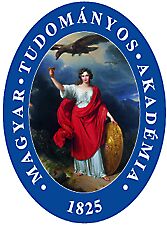
The Institute of Sociology, Centre for Social Sciences, Hungarian Academy of Sciences with more than 50 associates is currently the biggest research establishment of Hungarian sociology. The researchers of the Institute conduct the empirical study of social processes with aspirations of developing sociological theories and methodology. As experts they participate in the management of the society, in elaborating the different sociological contexts of the social policy and economy, in the development of different types of reform concepts and also in their critical analysis. The associates of the Institute organize workshops, national and international conferences for the discussion of scientific issues.
The Department of Research on Social Inequalities is one of the departments of the Institute. The department has13 researchers. The most significant broader research area of the department is the study of the reproduction of social inequalities.
Presently running research projects include research topics such as: Social and socio-economic inequalities and poverty; Lack of equal opportunities for various social groups defined by age, gender, social class and ethnic background; Research on family and chaning role of families as well as changing family roles; Migration; Realization of the principle of equal treatment and antidiscrimination; Social determination of social policy and its institutions.
Research in the Department of Research on Social Inequalities include basic research, as well as applied research which promote decision making in the field of social policy, education, family and employment. Members of the Department are involved in numerous international comparative reseach projects.
One of the latest international collaborative research project of 9 countries was EDUMIGROM: the Hungarian team was led by Maria Neményi, head of Department. The EDUMIGROM research project aimed to study how ethnic differences in education contribute to the diverging future prospects of minority ethnic youth and their peers in multiethnic urban settings.
Role in the project: The main role of the Institute of Sociology is to lead on the research and methodology activities of the project. It is going to be the research on the training needs of the teachers that teach Roma children and of the Roma children that are attending the last classes of the elementary school. It is going also to design a training methodology. In the framework of this WP, it will design a research framework in order to identify the main needs of the target groups: the training needs of the Roma children (factors that enhance the early school leaving) and the training needs of their teachers (what they need in order to support them). In the framework of this task, the Institute of Sociology will provide guidelines to the partners on how to perform the research, adapt the research framework according to the feedback received by the partners, realize the research in Hungary and drafting of national research report for Hungary, produce a comparative research report on the basis of the results in all the partners’ countries, develop the first draft of the methodology concerning the training practices that will help the teachers to support the Roma children to complete the elementary education. Finally, it will develop the final draft of the methodology on the basis of the partners’ comments. It will train the trainers in this methodology and will adapt it after the results of the training sessions. Also, it will participate in all the activities regarding the evaluation and dissemination of the project.
Operational and Financial Management: Two project managers will be appointed for the management of the project. One will be responsible for the operational aspects of the project and the other will be responsible for the administrative and financial aspects. Inside the organization, working groups will be created according to the tasks of the project.








